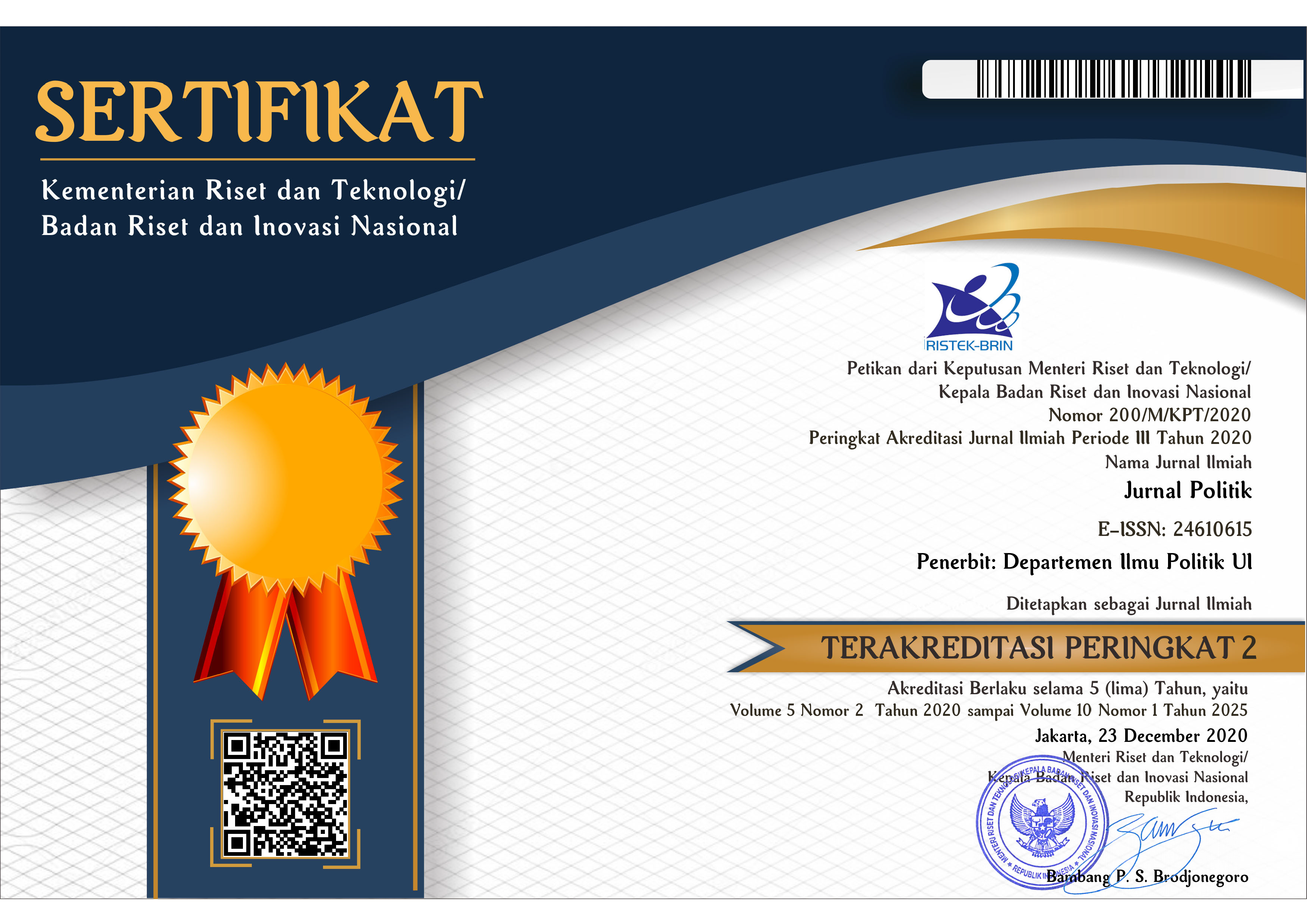Abstract
Cambodia is one of the countries that implements electoral authoritarianism system. This condition is misused by the ruling party, the Cambodia People’s Party or CPP, as the means to dominate the parliament until the 2008 election. However, the political party power distribution in Cambodia has undergone drastical change in the 2013 election. In this election, the CPP seats decreased significantly, which was the worst result for CPP since the 1998 election. The decrease was mainly caused by the failure of CPP to enchant the voters in four urban areas with high proportion of seats in parliament: Kampong Cham, Pnom Penh, Prey Veng, and Kandal. CPP had never failed in these four areas altogether before. This article argues that the lost of CPP in this authoritarian electoral regime was mainly caused by important issues currently present in Cambodia. By elaborating the theory of Dominant Party Authoritarian Regime and the concept of international election observer, this article argues that there are three main conditions occurred in Cambodia: the policies of Hun Sen regimes that cause many problems in the society, the increasing power of opposition parties and their success of campaign issue and strategy, and the role of international election observer in suppressing the practice of political intimidation by the military. This article uses qualitative method, by gathering primary data from indepth interview and secondary data analysis from literature review.
Recommended Citation
Fajari, Farizan
(2017)
"Kekalahan Cambodia People’s Party di Wilayah Urban Kamboja pada Pemilu Tahun 2013,"
Jurnal Politik: Vol. 2:
Iss.
2, Article 5.
DOI: 10.7454/jp.v2i2.1118
Available at:
https://scholarhub.ui.ac.id/politik/vol2/iss2/5
Included in
American Politics Commons, Comparative Politics Commons, Geography Commons, International and Area Studies Commons, International Relations Commons, Political Theory Commons


